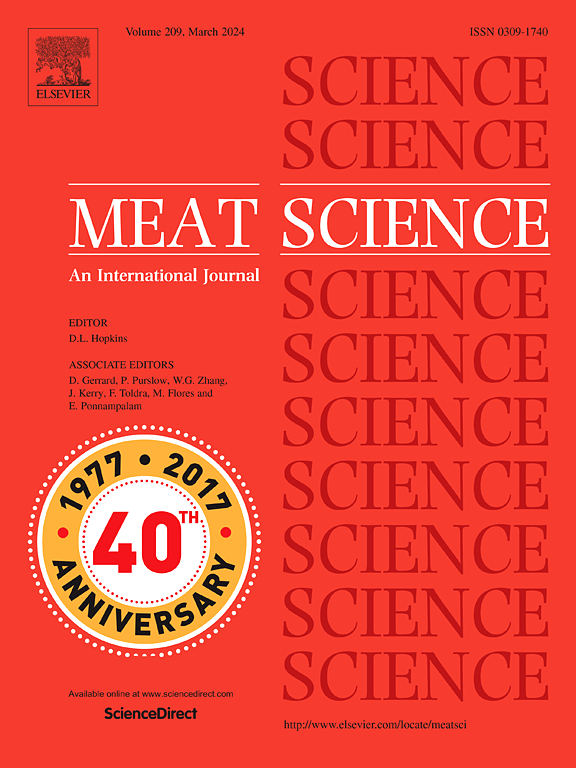The role of coagulase-negative staphylococci on aroma generation of fermented sausage
IF 7.1
1区 农林科学
Q1 Agricultural and Biological Sciences
引用次数: 0
Abstract
Fermented sausages are popular meat products with many different varieties. The aroma of fermented sausages depends on the metabolic activities of microbiota, mainly involving lactic acid bacteria and catalase-positive cocci, the group of coagulase-negative staphylococci (CNS) in particular. Regarding staphylococci, this work elucidated their generation of aroma precursors from hydrolase, metabolic activities contributing to aroma development, antioxidant effects that improve aroma via preventing excessive lipid oxidation. The metabolic pathways of staphylococci that play a role in aroma formation involve carbohydrate fermentation, amino acid degradation, fatty acid β-oxidation, and esterase activities. Their antioxidant activities are associated with superoxidase dismutase and catalase activities, as well as the production of antioxidant peptides. Processing conditions may influence CNS communities and affect aroma characteristics of fermented sausages. Implementation of genome sequencing and editing to select and customize CNS with specific biosynthetic metabolic pathways was proposed forward, offering a great potential for enhancing aroma development during sausage fermentation.

凝固酶阴性葡萄球菌对发酵香肠香气产生的作用。
发酵香肠是很受欢迎的肉制品,有很多不同的品种。发酵香肠的香气取决于微生物群的代谢活动,主要涉及乳酸菌和过氧化氢酶阳性球菌,特别是凝固酶阴性葡萄球菌(CNS)群。对于葡萄球菌,本研究阐明了其水解酶产生香气前体,促进香气发展的代谢活动,以及通过防止过度脂质氧化来改善香气的抗氧化作用。葡萄球菌在香气形成中发挥作用的代谢途径包括碳水化合物发酵、氨基酸降解、脂肪酸β-氧化和酯酶活性。它们的抗氧化活性与超氧化酶歧化酶和过氧化氢酶活性以及抗氧化肽的产生有关。加工条件可能影响发酵香肠的CNS群落和香气特性。通过基因组测序和编辑来选择和定制具有特定生物合成代谢途径的中枢神经系统,为提高香肠发酵过程中的香气发展提供了巨大的潜力。
本文章由计算机程序翻译,如有差异,请以英文原文为准。
求助全文
约1分钟内获得全文
求助全文
来源期刊

Meat Science
工程技术-食品科技
CiteScore
12.60
自引率
9.90%
发文量
282
审稿时长
60 days
期刊介绍:
The aim of Meat Science is to serve as a suitable platform for the dissemination of interdisciplinary and international knowledge on all factors influencing the properties of meat. While the journal primarily focuses on the flesh of mammals, contributions related to poultry will be considered if they enhance the overall understanding of the relationship between muscle nature and meat quality post mortem. Additionally, papers on large birds (e.g., emus, ostriches) as well as wild-captured mammals and crocodiles will be welcomed.
 求助内容:
求助内容: 应助结果提醒方式:
应助结果提醒方式:


